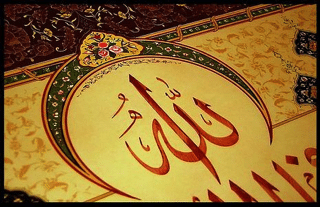Why Do We Use the Male Pronoun for Allah?
Answered by Shaykh Faraz Rabbani
Question:
Why do we call Allah “he” or “him” even though we have no way of knowing Allah’s gender? We could not say that about him.
Answer:
In the Name of Allah, the Merciful and Compassionate
Walaikum assalam,
I hope you’re doing well, insha’Allah. Allah Most High is transcendent beyond all similitude to creation. “There is nothing like unto Him,” [Quran, 42.11] “And there is none comparable to Him.” [Quran, 112.4] Thus, Allah is transcendent beyond gender—and we do not think of Allah Most High in any human terms.
Rather, “All that occurs to your thoughts, Allah is absolutely distinct from it.” [Ghazali, and others]
So What About the Pronouns?
In Arabic, the male pronouns are also used in the generic sense. This is how Allah Most High in His Wisdom addresses it. These pronouns (like “He” — هو) do not refer to gender. Rather, they point to Allah, the Eternal, the Absolute, the Independent, the One characterized by all attributes of perfection.
And Allah is the giver of success and facilitation.
[Shaykh] Faraz Rabbani
Shaykh Faraz Rabbani spent ten years studying with some of the leading scholars of recent times, first in Damascus and then in Amman, Jordan. His teachers include the foremost theologian of recent times in Damascus, the late Shaykh Adib al-Kallas (may Allah have mercy on him), as well as his student Shaykh Hassan al-Hindi, one of the leading Hanafi fuqaha of the present age. He returned to Canada in 2007, where he founded SeekersGuidance in order to meet the urgent need to spread Islamic knowledge–both online and on the ground–in a reliable, relevant, inspiring, and accessible manner. He is the author of Absolute Essentials of Islam: Faith, Prayer, and the Path of Salvation According to the Hanafi School (White Thread Press, 2004.) Since 2011, Shaykh Faraz has been named one of the 500 most influential Muslims by the Royal Islamic Strategic Studies Center
